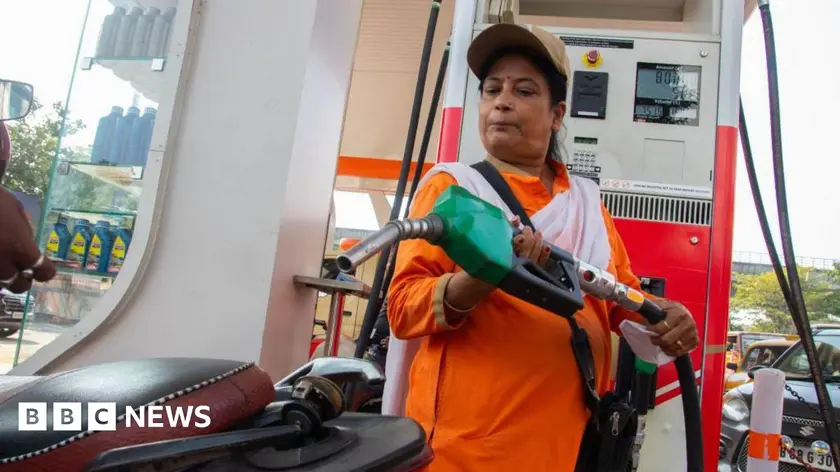T4K3.news
India advances E20 milestone with cautions for drivers
India hits 20% ethanol blend five years early; officials say engine tuning and parts upgrades can prevent mileage drops while some experts warn older vehicles may face wear and higher costs.

India blends ethanol with petrol to cut emissions and imports, but engine compatibility and consumer costs spark debate.
India's biofuel drive saves billions while raising concerns
India reached its target of blending 20 percent ethanol with petrol, known as E20, five years ahead of schedule. The move has helped cut millions of tonnes of carbon dioxide and saved foreign exchange, with 69.8 million tonnes of CO2 emissions avoided since 2014 and 1.36 trillion rupees saved in imports. The government frames the milestone as a climate and energy security win.
Yet concerns linger about the real-world impact on engines and fuel economy. A large share of vehicles on Indian roads are not E20-compatible, and riders have reported mileage declines in social media posts. Experts warn ethanol’s lower energy density and higher corrosiveness could wear parts faster in older cars. Insurance providers also raise questions about where coverage ends when fuel is not fully aligned with vehicle specifications. The petroleum ministry calls the worries largely unfounded, arguing that engine tuning and E20-compatible materials can reduce mileage loss and that parts replacement is inexpensive and easy during routine servicing. A Delhi think tank study projects emissions from non-road transport to nearly double by 2050, underscoring a longer-term trade-off between cleaner power and the cost of adaptation.
Key Takeaways
"The demand for fuel is only going to increase and shifting to ethanol-blended petrol is absolutely necessary to cut down emissions."
Advocates support for ethanol blending
"ethanol has a lower energy density than petrol and is more corrosive"
Technical critique of ethanol blends
"Consumers need to take add-on policies but even those claims can be denied or downgraded based on fine print of the policy"
Insurance risk for non-compliant fuel use
"engine tuning and E20-compatible materials could minimise the drop in mileage"
Government response to concerns
The policy choice is simple on paper: cleaner fuel, less oil import dependence, and a smaller carbon footprint. In practice, it hinges on a broad and costly upgrade of the vehicle fleet, from factories to fuel pumps to repair shops. If dealerships and insurers don’t align with the change, the gains could slip into hidden costs for ordinary drivers. The administration should pair blunt policy targets with practical safeguards: transparent mileage data, accelerated retrofitting programs for older vehicles, and stronger consumer protections in insurance terms. The tension between environmental aims and everyday costs will shape public trust and political support for future clean-energy measures. The coming months will reveal whether the system can balance ambition with everyday feasibility.
Ultimately, the transition tests both policy courage and market resilience. A clear data trail on mileage, maintenance costs, and repair availability will be crucial for building confidence among drivers and manufacturers alike.
Highlights
- Fuel policy must guard both the planet and the pocket
- Engine health cannot be sacrificed for cleaner air
- Money saved on imports carries a price tag in maintenance
- Clear tests and receipts, not promises, will win public trust
biofuel policy faces consumer and financial risks
Public concerns about engine wear, mileage loss, and insurance coverage point to potential consumer costs and political backlash if not managed. The fiscal implications of retrofitting older cars and ensuring consistent ethanol supply also merit scrutiny.
The policy curve will bend toward practicality as more data surfaces and longer-term maintenance costs become clearer.
Enjoyed this? Let your friends know!
Related News

Autism study identifies brain gate as therapy target

Carlsberg posts solid half year results

Moore Threads S90 shows strong performance against NVIDIA RTX 4060

Stocks Retreat as Investors Await Key Technology Earnings

Artemis 2 advances in lunar mission prep

Tech stocks retreat as markets pause after record highs

Milestone in mitochondrial donation achieved

Rigetti Achieves Significant Quantum Computing Milestone
